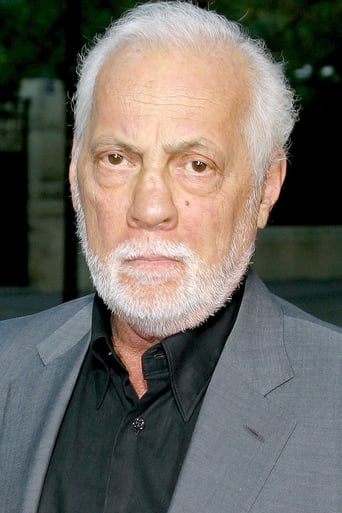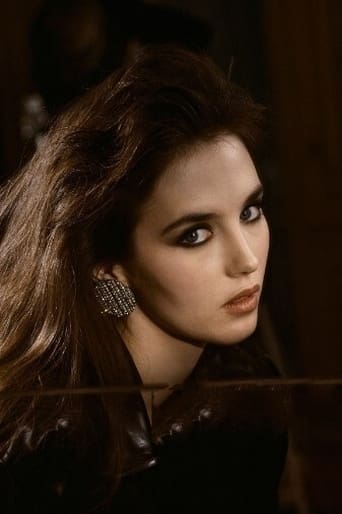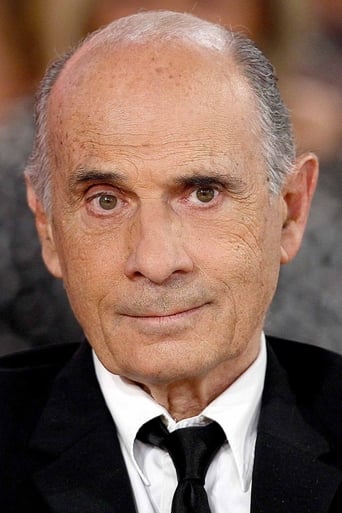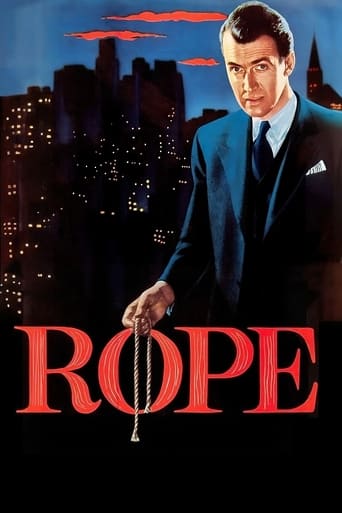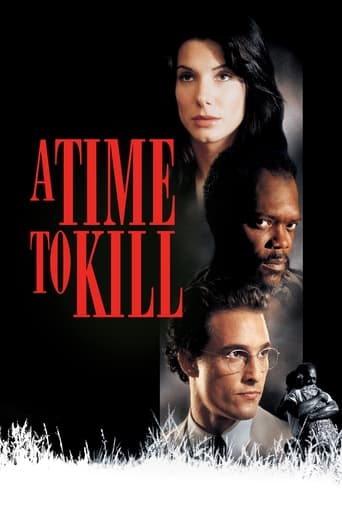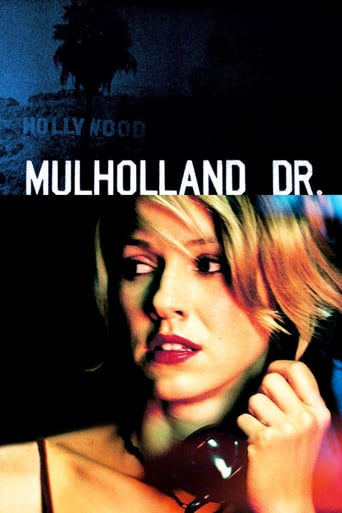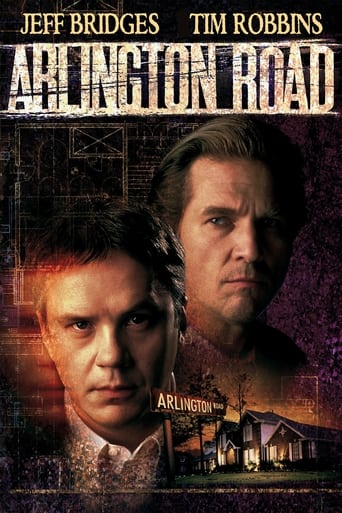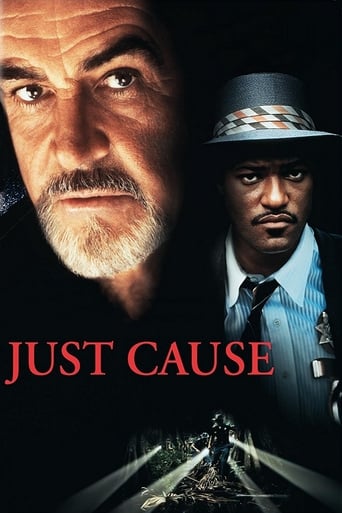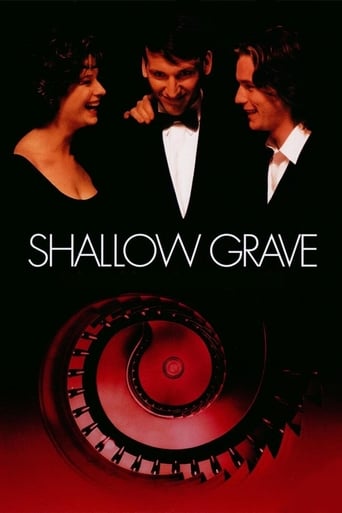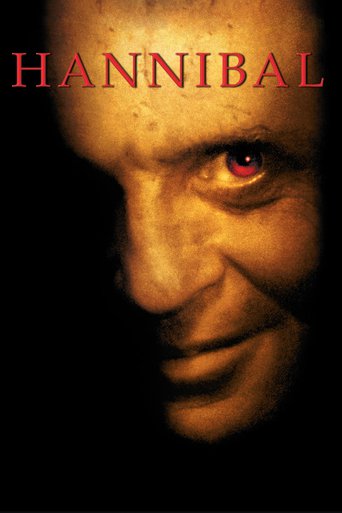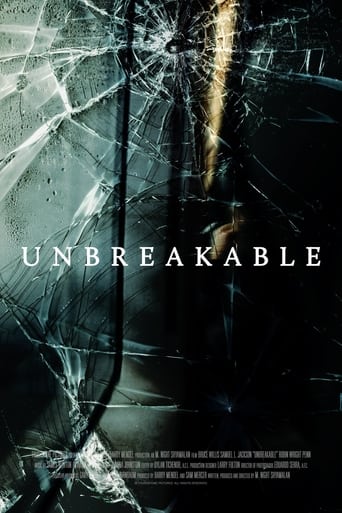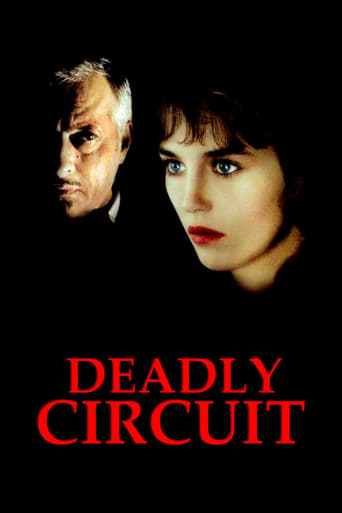
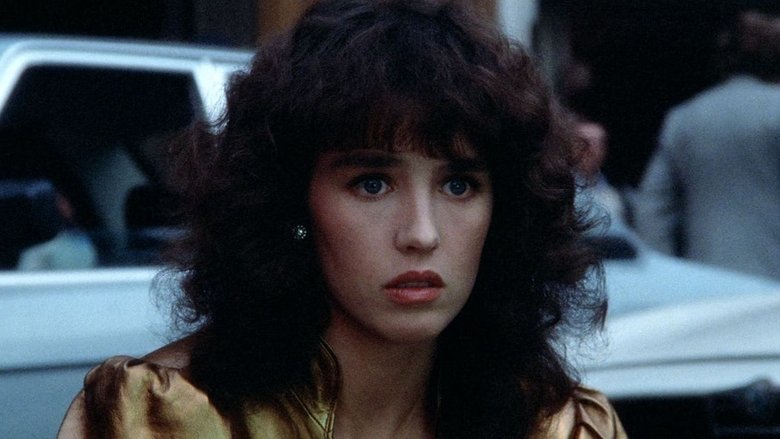
Deadly Circuit (1983)
A P.I. is obsessed with a cute woman, who seduces and kills rich men around W. Europe.
Watch Trailer
Cast


Similar titles
Reviews
People are voting emotionally.
Good story, Not enough for a whole film
Fresh and Exciting
A Masterpiece!
Looking at my April viewings,the most unexpected quality viewing I've had is François Truffaut's 1975 Costume Drama The Story of Adele H,largely due to the performance from Isabelle Adjani. Since seeing him charge the Neo-Noir atmosphere up with 1981's Garde à vue,I've been keeping a look out for more creations by Claude Miller. Checking Adjani's credits,I was thrilled to find that she had worked with Miller on a Neo-Noir that has recently turned up uncut with Subs, (the cut DVD came out after US remake Eye of the Beholder)which led to me breaking the circuit.View on the film:Following up Garde à vue by cameraman Gilbert Duhalde becoming the cinematographer here, directing auteur Claude Miller beautifully expands on the recurring motifs of Garde with lush outdoor watercolours, and a haunting Jazz score from Carla Bley. Making the 2 hour run-time move at an incredible speed, Miller gives "The Eye" tracking Marie a pristine Neo-Noir clarity of tracking shots following The Eye's attempts to blend in with the crowd. Bending the initial investigation to the Eye's growing obsession,Miller twists it into an ultra-stylised dream-logic world,where Marie's killings have the metallic shine of Giallo, a telekinetic-like connection made with smoothly-held tracking shots,and an explosive shattering of the connection between The Eye and Marie.Spreading limited details of Marie's life across the screen in photos, Michel & Jacques Audiard's adaptation of Marc Behm's book brims with a Neo-Noir attention to detail,where The Eye excitingly takes the smallest clue to make the fullest portrait of Marie. Turning the mystery down to a simmering threat, the writers masterfully piece together The Eye's years following of Marie into a study of obsession, where the anticipation of speaking to her gets The Eye to start imagining/performing what he dreams their first encounter will be.Lighting the eyes of The Eye from every sighting, Isabelle Adjani gives a magnificent performance as Marie, whose mysterious murmurs on her life pulls everyone from Stéphane Audran's " The grey lady" to Sami Frey's Ralph Forbes towards this Femme Fatale's blast of silence. Reuniting with Miller after Garde,Michel Serrault gives a thrilling performance as Neo-Noir loner The Eye,with Serrault and Adjani impressively creating chemistry just from glances at each other. Desiring to learn all about Marie,Serrault strips The Eye's life to a raw obsession,which cracks as the deadly circuit breaks.
There's a private detective who keeps an old b/w photo with him. It shows a class of little girls and one of them is his daughter but he doesn't know which one so they're all his daughter. There's a mysterious girl, beautiful and a little sad, she goes around changing names and wigs and killing rich men (but not for their money, the money only the means by which she can sustain herself until she can kill again) and she tells outrageous made-up stories about a father she probably never met. The movie sets itself up as something potentially quirky, a noir patchwork where the dialogue is witty, a corpse is dumped in a lake, and the private dick tails the mysterious woman from murder to murder.It's around that point when the movie must decide the course, when the crime mystery begins to dissolve into something irrelevant because the private dick is not trying to catch her any more, in fact he starts erasing her traces and lying to his boss, and he calls her "Marie", the name of his long lost daughter, so that we're not asking whys anymore but rather staring obsession straight in the eye. This newfound surrogate daughter becomes a compulsion but it only starts there. It gets confusing, almost surreal like characters can foresee things, but it's an interesting confusion for me because the latenight atmosphere is right and something intuitive is suggested between the two protagonists. It's like we're in the cavelike gloom of a hotel staircase and the plot is used like an oil lamp that serves to increase that gloom and mystery for us and we can't tell at once what is going on on the top floor until we're halfway up there.At one point there's a TV showing FW Murnau's The Last Laugh and the girl begins fashioning another madeup tale about her father, tailored this time after Emil Janning's hotel porter character in Murnau's movie, the tale is outrageous and weepy like bad melodrama but it's the telling that makes it poignant, like the magnitude of the lie suggests the depth of what is broken. Michel Serrault's private detective is one of the most fascinating movie characters of the 80's, he's methodical in his work but also a little detached from everything around him like Elliot Gould's Phillip Marlow in The Long Goodbye, and the only thing that keeps him going is the pursuit of obsession. Right down to the amazingly sad ending, Mortelle Randonnee is a forgotten gem, a little flawed around the edges and the details sometimes go out of focus like we're in a car and the view from the window is blurred but we stop at places and bizarre things happen there (often at gunpoint) and then we're on the move again, and it's that neon- lit blur of something sad and desperate that makes it fascinating.
Behind his front of overflowing bitterness and cynicism, private eye Louis Beauvoir (Serrault), nicknamed L'Oeil, is deeply missing of a child to protect and cheer, while he is tracking down a serial killer, Catherine Leiris (The iris)(Adjani).The followed young woman will be just half-real, she'll be rather like the private eye dreams her.Like a picture of innocence in his memory, she should stay untouched and untouchable, so he will involve himself in her flight. Through his eyes and ears, she is a mythomaniac orphan, she has misbehaved, she considers herself as garbage, but she wants fondness, getting a substitutive father's attention by murdering men and women who get too close to her.The dream can last as long as the soliloquizing self-designated father can stay in tune with his substitute daughter, despite awakening bodies on their road, every bodies that did not have sleepwalker's stare and beat. We, as viewers, wish the great encounter and the forgiveness. We dream. We are willing to roam.A long time after we are supposed to be awake and down to earth, we are still humming the main musical theme, or La Paloma, or Schubert's lieder, who all played in the movie.Mortelle randonnée is an ambiguous and dark fairy tale for adults, sprinkled with bridges and winks. After many viewing, there is still to explore and enjoy in Mortelle randonnée, at least in the version I saw (118 min.).Mortelle randonnée is only a movie, not somebody. A movie does not think it is good. Only people can think Mortelle randonnée is good, or think it is not. It is a matter of taste. Critics who attribute thoughts or claims to movies, instead of ascribing them to film-makers or critics, should perhaps visit a psychiatrist.
The French love for American crime novels has been written about many times. Jim Thompson's works have been adapted by many of the leading directors. Truffaut's early career was based largely on this genre; he made Shoot the Pianist from David Goodis's novel, and many of Chabrol's films are taken from American pulp. Claude Miller made his second film Dites-lui que je l'aime from Patricia Highsmith's This Sweet Sickness.In Mortelle Randonnee, Miller is working with Marc Behm's novel The Eye of the Beholder, which I haven't read. I suppose Miller chose to throw out most of the plot elements of Behm's book; that's the usual practice in France. The theme of obsessional love of a man for the girl he believes to be his daughter is triumphantly brought to life by a great cast, aided by Carla Bley's richly melancholic music (post-modern brass band?), Pierre Lhomme's lovely camera-work (those rain-slicked night shots, the sad neon lights on hotel fronts), the expert choice of sets (Helmut Newton would have loved that German health spa where Catherine meets the lesbian Cora).Finally, the wonderful cast: Michel Serrault so wistful as the private investigator preparing an endless series of cover-ups of Adjani's killings, he's as good here as he was in Garde à vue; Isabelle Adjani living on her jangled nerves as she criss-crosses Europe in search of new prey; Geneviève Page (who I remember from Belle de jour--the brothel keeper) as the crisp director of the detective agency Serrault works for; the startling transformation of the gorgeous Stéphane Audran into a homely housewife--what a makeup job--who is also tracking Adjani. The last act is darker and more anguished than the preceding ones, the viewer will have to resist the urge to ask what happened to the comic bits.


